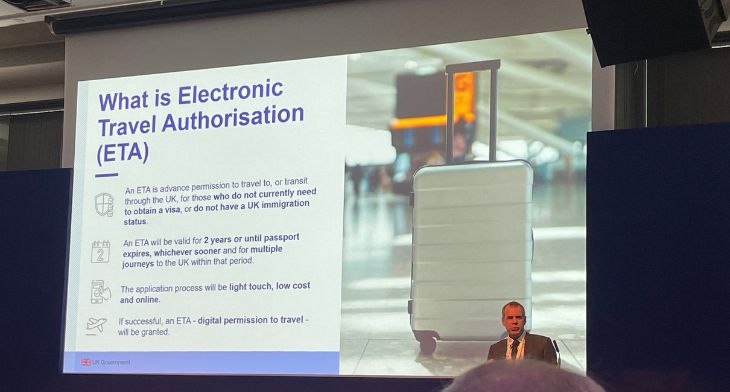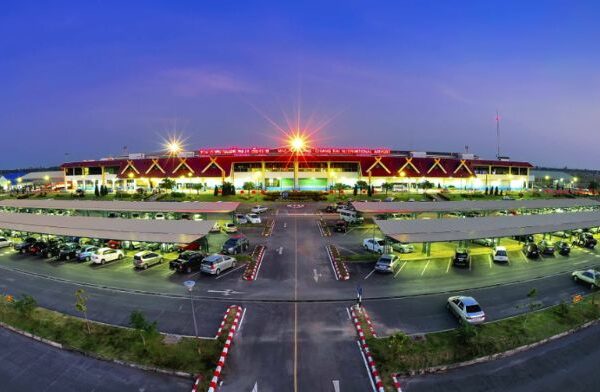


Following the successful implementation of the UK Electronic Travel Authorisation (ETA) at the end of 2023 and beginning of this year for visitors from Bahrain, Jordan, Kuwait, Oman, Qatar, Saudi Arabia and the UAE, the UK Government is now looking to implement the scheme for visitors from the EU and North America.
The question at last week’s British Business and General Aviation (BBGA) AGM where Nigel Farminer, Head of Passenger Policy and Border Transformation, Future Border and Immigration Systems Programme (FBIS), was delivering a keynote at ETA is what impact will this wider roll out have on airports and airlines?
“It’s about making border entry a single process, rather than a truncated one,” said Farminer. “Digital processes have made a huge difference to our travel authorisations. Those who have travelled from the UK to the US, Canada, Australia or New Zealand will have gone through a similar process as the ETA, which is loosely modelled on the US ESTA. It does not get you across the UK border, but it does get visitors to the UK border more efficiently and enables border force officers to only pick out those travellers that they feel might pose a threat. But overall, the increased use of automation will speed up clearance at the border, bolster security of the UK border and improve the overall passenger experience.”
The ETA costs £10 and is valid for two years (unless the traveller’s passport expires sooner) and can be used for multiple journeys. Passengers can apply for it online through a UK Government website or via the app and travellers will be asked to supply a photo and complete a short series of questions about their travel, nationality, criminality etc. “The vast majority of applications will be granted within minutes and as we move forward that will improve to a matter of seconds,” added Farminer. Although decisions can take up to three days.
While students and skilled workers with visas are exempt from needing an ETA, non-visa passengers transiting through airports will, which could cause disruption at some of the major hubs such as Heathrow where around 30% of passengers are in transit. As a result, some travel industry experts predict overseas travellers with a choice will switch to other hubs to avoid additional red tape and cost. Similarly there is concern in Northern Ireland with eligible visitors who have previously been able to enter the country without formality, now legally requiring an ETA to cross the border once the scheme is rolled out to other nationalities.
“For the airports there is no investment required for the ETA roll out, however scheduled carriers will need to adapt their API systems
“It’s very much about improving security and the flow of inbound passenger traffic,” concluded Farminer. “We’ve had high levels of compliance with ETA applications so far. With the initial roll out we’ve had over 100,000 applications and when fully implemented we’re expecting around 100 million applications. In due course we hope to include biometrics including fingerprint recognition in the enrolment process for travel authorisation, but we are are not there yet with the technology. We are working with industry to overcome that.”
Header image: Nigel Farminer, Head of Passenger Policy and Border Transformation, speaking at the 2024 BBGA AGM. Picture taken by Chloe Greenbank





